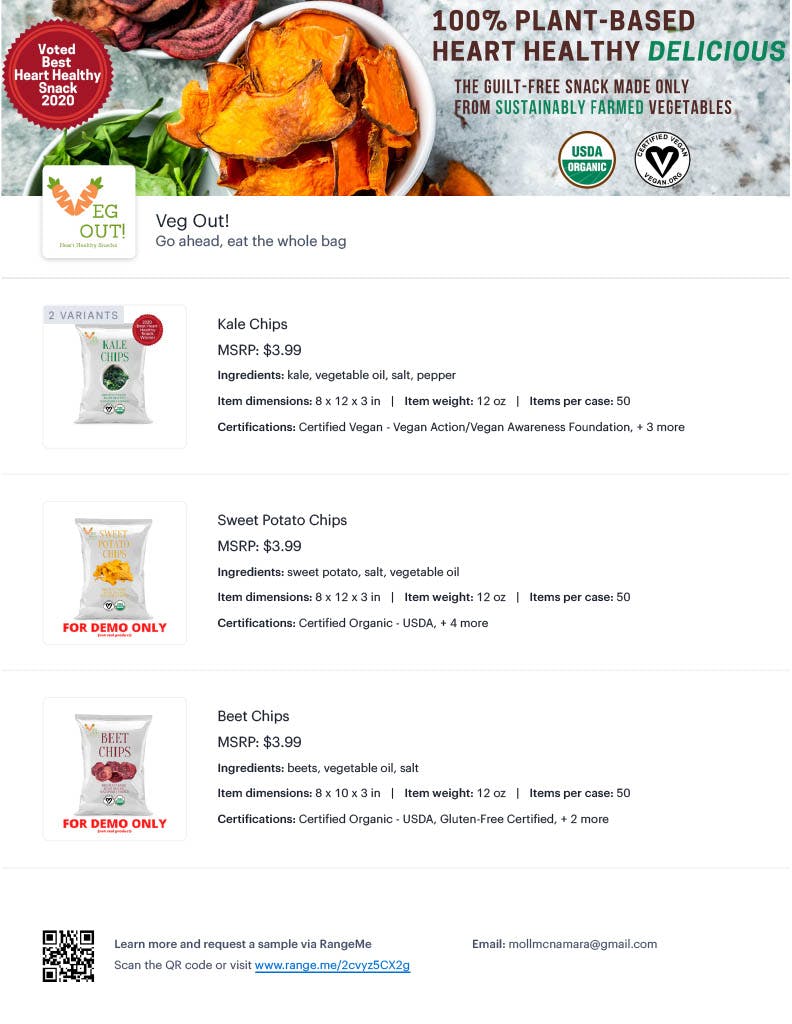British consumers have global tastes – and the COVID-19 crisis appears to have further whetted their appetites for international products. The influential British magazine Retail Week has identified the desire for more adventurous flavours in food and drink as a critical trend for U.K. retail in 2021, enabling consumers unable to travel internationally to taste more cuisines. The magazine also picks out beauty products and the health and wellbeing sector as key areas of interest for British consumers focused on looking after themselves in the wake of the pandemic.
RangeMe’s platform gives international suppliers a means to meet these demands, connecting product providers around the globe with U.K. retailers. Still, while the platform makes it easier than ever before to sell into the U.K., it is vital to understand what these retailers are looking for – and how to improve your chances of clinching a deal to supply to them.
What U.K. retailers look for in brands
If there was one word to summarize what British retailers are looking for in new brands, it would be “authenticity.” Retailers in the U.K. are acutely aware of shifting consumer attitudes – and in one recent survey, 86% of shoppers said authenticity was a key factor when they decided which brands to support.
Would-be international suppliers need to find ways to tap into that theme. And whatever the size of your business, if you have a backstory to leverage, it gives retailers an opportunity to provide customers with products that are unique and interesting.
That could mean a focus on local. For example, if you use local materials or ingredients, or your goods are made using regional techniques, this is a key point to stress. Artisanship also sells well: is there something unusual about what goes into your product or how you make it. Packaging is a key part of the story too – does your product look and feel authentic, local, and intimate?
Third-party ratification of your authenticity and commitment to quality can also add real value to your product. Key accreditation bodies include the Safe and Local Supplier Approval and the BRC Global Food Safety Standard. Both are globally recognised and can provide your brand and products with greater credibility.
One other issue to think about is sustainability. With four in five U.K. consumers saying they now want to make more sustainable lifestyle choices, retailers are looking for products that meet that need. If your brand has strong sustainability credentials that you can evidence clearly, this could be a key factor in clinching a deal with a U.K. retailer.
Getting in front of U.K. retailers
RangeMe provides the shop window through which you can display your products to buyers in the U.K. But to secure sales, you need to think carefully about what that display looks like and who you are hoping to attract.
One good way to do that is to work on your sell sheet, a one- or two-page summary of your product that sets out its key features.
The sell sheet should include product information, including key benefits and unique selling points, but also practical data such as your suggested wholesale and retail pricing, as well as any discounts you are prepared to offer for bulk orders. Include good-quality photography and testimonials from other wholesale customers if you have them, as well as consumer reviews, if they help build your case.
Make sure you include key certifications, patents, and intellectual property rights if these are relevant to your pitch – and make it clear what sort of volumes you are in a position to supply. Bear in mind that successful products may see demand spike up quickly, so retailers may need to know how quickly you could ship additional supplies. Providing basic information on your company’s financial position – and the performance of your products in other key markets, if you have it – can help bolster your credibility in this regard.
Finally, the specific content – and look and feel – of your sell sheet may vary according to the retailer you feel is the best fit for your product. This means doing some market research before you finalise your pitch – which retailers stock products in your categories and at your price points, for example?
Although this process may seem complicated, RangeMe provides an easy way for suppliers to use their profile to create customized Downloadable Sell sheets for different audiences such as category buyers or specific trade events.

Dealing with the practicalities
Remember that persuading a retailer of the merits of your product is only half the battle – there will also be practical steps to work through as part of any deal. You need to be prepared for these.
One common issue is exclusivity – selling to one retailer may lead to sales with its peers, but not if your first consumer demands exclusive rights. Think about whether you are prepared to grant these and if so, for how long.
Retailers will also want to hear about your plans for distribution. How will you ship to them, ensuring that your product is available, as and when they need it? That means considering both international shipping and supply once your product reaches the U.K. Once they place an order, how quickly can you meet it?
Above all, think carefully about pricing. Retailers will expect to negotiate with you on price, so have a very clear idea about what you can accept. U.K. retailers have a reputation for driving a hard bargain with suppliers, so it is important to be prepared – and know what you can offer while still ensuring a profit.
Flexibility and speed are key at this stage. If you’re able to move quickly, be responsive, and to communicate effectively, there is every chance you can build strong and enduring relationships with U.K. retailers.

